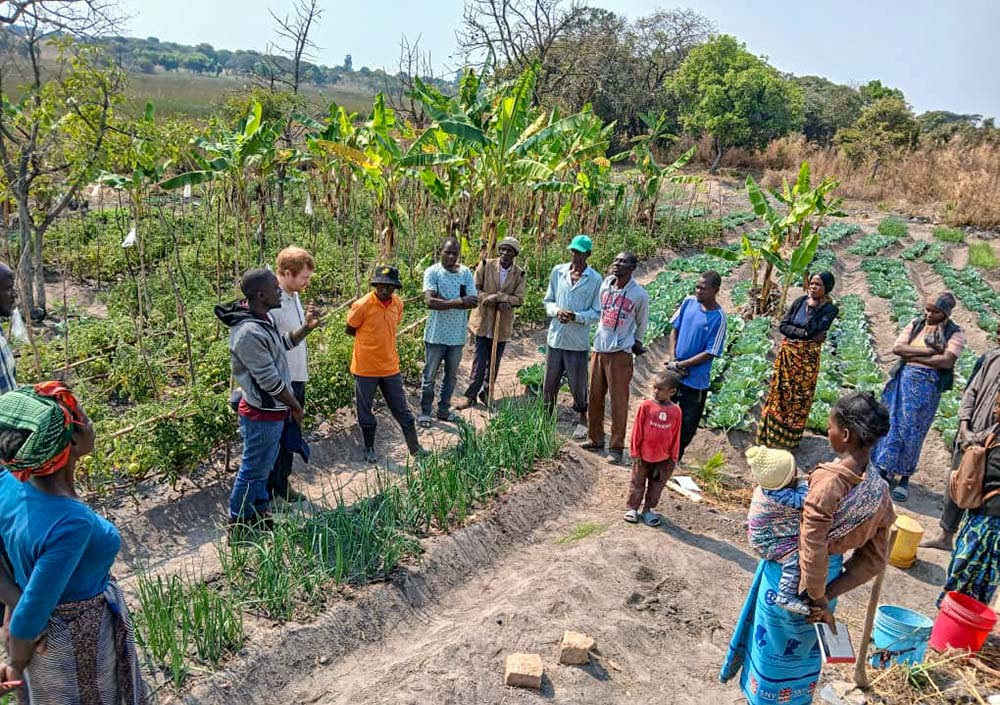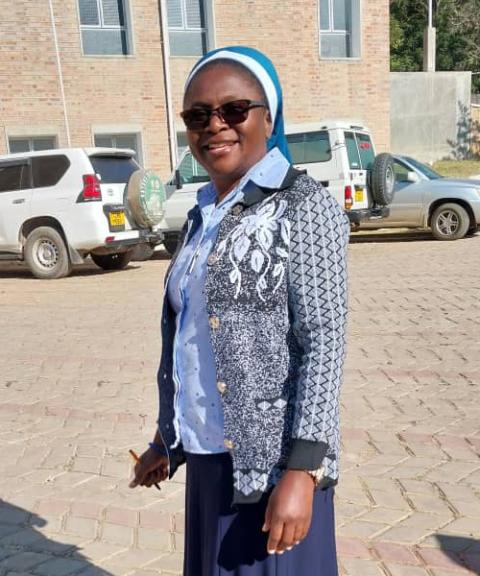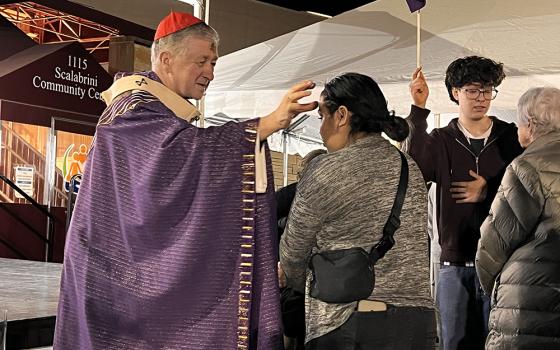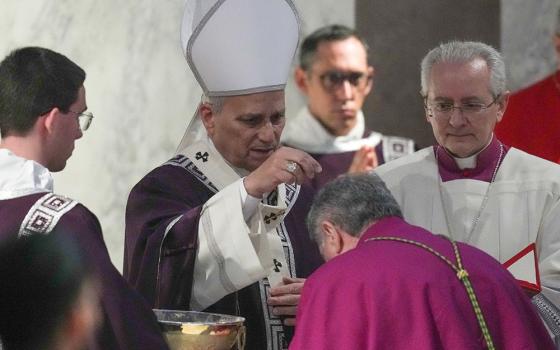
The Congregation of the Sacred Hearts of Jesus and Mary administer and raise funding for the Inclusive Development Program, which spearheads environmental protection and climate change mitigation in Zambia. (Courtesy of Congregation of the Sacred Hearts of Jesus and Mary)
Sacred Hearts of Jesus and Mary Sr. Yvonne Nwila worries that the poor and vulnerable in Zambia will suffer more from climate-change-induced food insecurity after the withdrawal of aid and development funding by the United States.
Nwila told Global Sisters Report that the Sisters of the Sacred Hearts of Jesus and Mary, Catholic agencies, and other environmental campaigners and groups in Africa have lost funding for climate change resilience and mitigation programs after the U.S. government halted funding activities of the U.S. Agency for International Development.
Nwila and her congregation administer and raise funding for the Inclusive Development Program (formerly known as Households in Distress Program), which spearheads environmental protection and climate change mitigation in Zambia. Under the program, community members are trained in the construction of biogas facilities, energy-saving stoves and tree planting, as well as sustainable agricultural and livestock practices.
"My biggest fears about climate change are the effect it has on food security; we have seen it in the past year with extended drought. What we are going through with aid and funding being cut off, [with] big nations pulling out of climate change interventions and investing in other things like war, leaves us all affected," she said.
She is worried that crucial funders, such as the European Union, are now interested in funding only large-scale energy and climate resilience projects in Zambia, ignoring smaller community-based projects such as those run by the sisters. With the shutdown of USAID, these community-based environment and climate change projects are now facing critical funding bottlenecks.

Sacred Hearts of Jesus and Mary Sr. Yvonne Nwila (Courtesy of Congregation of the Sacred Hearts of Jesus and Mary)
"It has become more difficult to raise funding, and we have seen our funding going down. It's difficult to find funders who are interested in climate change and environmental protection programs," Nwila told GSR.
Zambia is among the many poor, struggling sub-Saharan African countries most affected by climate change. The region is frequently affected by droughts, floods and cyclones that often destroy livelihoods, leaving vulnerable populations struggling with food insecurity and needing humanitarian food aid.
A recent report by CAFOD, the Catholic Church's official aid agency in England and Wales, said, "Food insecurity in East Africa remains alarmingly high, with South Sudan and the Democratic Republic of the Congo bearing the heaviest burden."
The U.S. halt of overseas aid funding has had far-reaching impacts on environment and climate change programs in Africa, said Leeky Benthall, CAFOD's international development funding team leader.
Benthall said that securing funding for environment and climate change programs in Africa has become difficult as the "traditional donor landscape of grants has shrunk dramatically with USAID, and the U.K. government's aid cuts. Funds for climate and environmental calls have either been deleted or postponed."
Environmental programs for the Sisters of the Sacred Hearts of Jesus and Mary in Zambia have proven to be impactful for communities, thanks to faith-based Irish aid group Misean Cara, which has continued to support the projects financially.
For example, the biogas facilities they worked with communities to develop have been helpful as they reduced the cutting down of trees for firewood and charcoal.
Researchers from the International Growth Center estimate that Zambia's annual deforestation is between 167,000 and 300,000 hectares, attributing this mostly to drought that "drives smallholder farmers to increase charcoal production as an alternative source of income."
Nwila noted, "Our communities no longer collect firewood and are not using charcoal anymore, but are using clean energy. This has reduced the cutting down of trees and is helping preserve nature."
Sacred Hearts of Jesus and Mary Sr. Muda Chirwa was inspired by the late Pope Francis to pursue environmental protection and climate change programs in the impoverished southern African country.
"Mother Earth is our home and is not for us to destroy," she said.
Advertisement
Misean Cara is the only funder they have for environment and climate change programs in the African country of 21 million, and the problems that sisters are facing in raising funding for climate change programs are proving to be worrisome and causing sleepless nights.
According to Wesley Singogo, program director for the Inclusive Development Program, funding was dwindling since COVID-19. The situation has now worsened after the closure of USAID.
"Aid agencies that still have funding are prioritizing clinical and hospital programs. Funding which relates to climate change is focused on energy generation, so that community-based organizations like ourselves cannot do big projects because our solutions focus on the local community," he explained.
Catholic environment and climate change groups, such as the Jesuit Justice and Ecology Network Africa, are concerned about the sudden nature of the aid cuts by the United States.
Jesuit Fr. Rampe Hlobo, director of the network, said that smaller organizations carrying out climate change and environment programs in communities across Africa had their funding contracts terminated with no notice.
"Small organizations with budgets of less than $1 million had contracts canceled overnight, leaving them no opportunity to transition responsibly or adapt strategically," he said.
Hlobo added that Trocaire, a key partner of the Jesuit Centre for Ecology and Development in Malawi, was directly affected by the funding cuts and limited the financial capacity to support implementing partners.
For Nwila and Chirwa, not having the capacity to run environment and agro-ecology programs in the face of worsening climate change and related food insecurity are the most difficult consequences of the withdrawal of U.S. funding.





